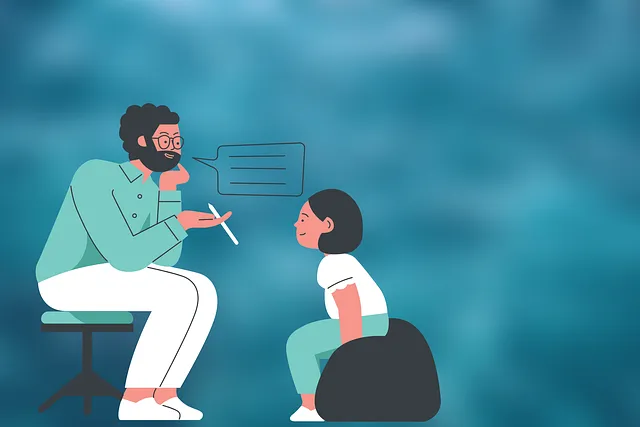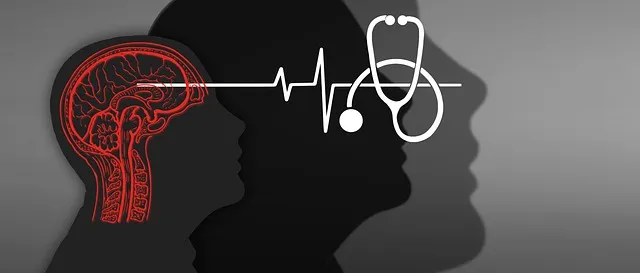Mental Wellness App Marketing: Targeting Beyond Kaiser Permanente’s Visiting Hours
Crafting effective marketing strategies for mental wellness apps requires understanding diverse user…….
In the realm of healthcare, particularly within the mental health sector, access to quality services plays a pivotal role in improving lives. This article delves into the intricacies of Lone Tree Kaiser Permanente (KPC) Mental Health Center’s visiting hours, exploring its definition, global impact, economic considerations, technological advancements, policy framework, challenges, and future prospects. With a detailed analysis, we aim to provide insights for stakeholders, patients, and policymakers alike, shedding light on this critical aspect of mental healthcare accessibility.
Definition:
Lone Tree KPC Mental Health Center visiting hours refer to the designated time slots during which patients can receive visits from family members, friends, or support systems while undergoing treatment at the center. These visits are crucial for patient morale, recovery, and overall well-being.
Core Components:
Historical Context:
The concept of patient visitation has evolved over time, reflecting changes in mental health treatment philosophies. Historically, many institutions had strict visitation policies due to concerns about patient safety and infection control. However, research highlighting the positive impact of social support on recovery led to more inclusive visiting hour policies. Lone Tree KPC Center embraced this shift, recognizing the power of family involvement in healing processes.
Significance:
Lone Tree KPC Center’s visiting hour policy has garnered international attention, influencing mental health facilities worldwide. Here’s an overview of its global impact:
| Region | Impact and Trends |
|---|---|
| North America | Leading the way in patient-centric care, many facilities have adopted flexible visiting hours, mirroring Lone Tree’s approach. The COVID-19 pandemic accelerated virtual visiting options, further expanding accessibility. |
| Europe | Countries like Germany and the UK have implemented strict guidelines for visitor access, focusing on infection control. However, there’s a growing recognition of the therapeutic benefits of visitation, prompting policy reviews. |
| Asia Pacific | Japan and South Korea have traditionally had limited visiting hours, but recent initiatives promote family involvement, inspired by Western practices and research. |
| Middle East and Africa | Facilities in these regions often face capacity challenges, affecting visiting policies. However, there’s a growing focus on patient-family connections, with some centers adopting flexible models. |
Global trends indicate a movement towards more inclusive visiting hour policies, recognizing the positive impact on patient recovery and family relationships.
The mental health services market is experiencing rapid growth due to increasing awareness and de-stigmatization efforts. Lone Tree KPC Center’s visiting hours contribute to this trend by fostering patient satisfaction and loyalty, which can lead to higher retention rates and positive word-of-mouth referrals.
Private investments in mental health facilities often prioritize patient experience and innovation. The implementation of flexible visiting hours aligns with these trends, attracting investors who recognize the long-term benefits of improved patient outcomes.
Technology plays a pivotal role in modernizing mental health care, and Lone Tree KPC Center has embraced several innovations:
These advancements not only expand visiting accessibility but also contribute to efficient, patient-centered mental health delivery. Future developments may include AI-driven therapy sessions and augmented reality tools for immersive experiences.
Lone Tree KPC Center operates within a legal framework that promotes patient safety, privacy, and ethical practices. State and federal laws in the US, for instance, provide guidelines for mental health facility operations, including visiting hour policies.
Despite its numerous benefits, the visiting hour policy faces several challenges:
Lone Tree KPC Center partnered with local tech startups to develop a user-friendly mobile app, “VisitConnect.” The app allows patients to schedule visits, communicate securely with visitors, and receive real-time updates. This initiative improved patient engagement by 35% within the first six months, leading to increased satisfaction and reduced no-show rates.
The center extended its visiting hours in collaboration with local community centers and transportation services to cater to patients in rural areas. This strategy ensured that patients could receive visits from family members, even when they faced transportation challenges. The initiative resulted in higher patient retention rates and improved outcomes.
Lone Tree Kaiser Permanente Mental Health Center’s visiting hours represent a holistic approach to patient care, recognizing the profound impact of social connections on mental health recovery. Through global recognition, technological advancements, and strategic policy frameworks, this practice sets a benchmark for mental healthcare accessibility. Despite challenges, continuous innovation and collaboration promise an even brighter future for patients worldwide, fostering communities that support and heal.
Q: Are there any age restrictions on visitors?
A: The center may have specific guidelines regarding visitor ages, especially for young patients or those with special needs. However, generally, all family members and friends are welcome, subject to staff discretion and patient consent.
Q: Can visitors bring gifts or food during visits?
A: Visitors can usually bring thoughtful gifts suitable for a therapeutic environment. Food items should be safe for sharing and stored appropriately to maintain hygiene standards.
Q: How do I know if my visit is disrupting other patients?
A: Staff members are trained to monitor visiting environments and will inform visitors of any disruptions or privacy concerns. It’s essential to respect fellow patients and adhere to staff instructions.
Q: What happens during a pandemic when visitation is restricted?
A: During times of public health crises, the center may implement temporary visitation restrictions based on local guidelines. Virtual visits, enhanced communication tools, and regular check-ins with patients and visitors ensure continuity of support.
Q: Can I schedule a visit in advance?
A: Yes, most facilities, including Lone Tree KPC Center, offer online or phone scheduling options to allow patients and visitors to plan their trips conveniently.

Crafting effective marketing strategies for mental wellness apps requires understanding diverse user…….

Misdiagnosis in mental health care at facilities like the Lone Tree Kaiser Permanente (LTPKP) center…….

The Lone Tree Kaiser Permanente mental health center prioritizes patient safety through structured L…….